In September, Thales Alenia Space organized its sixth flagship innovation contest, #HelloSpace6, held in the impressive grounds of Queens College, Oxford UK. Over 3 days, 54 of our colleagues, coming from different sites, have provided 11 outstanding groundbreaking concepts based on the theme of this edition:
Toward a deep space ecosystem!
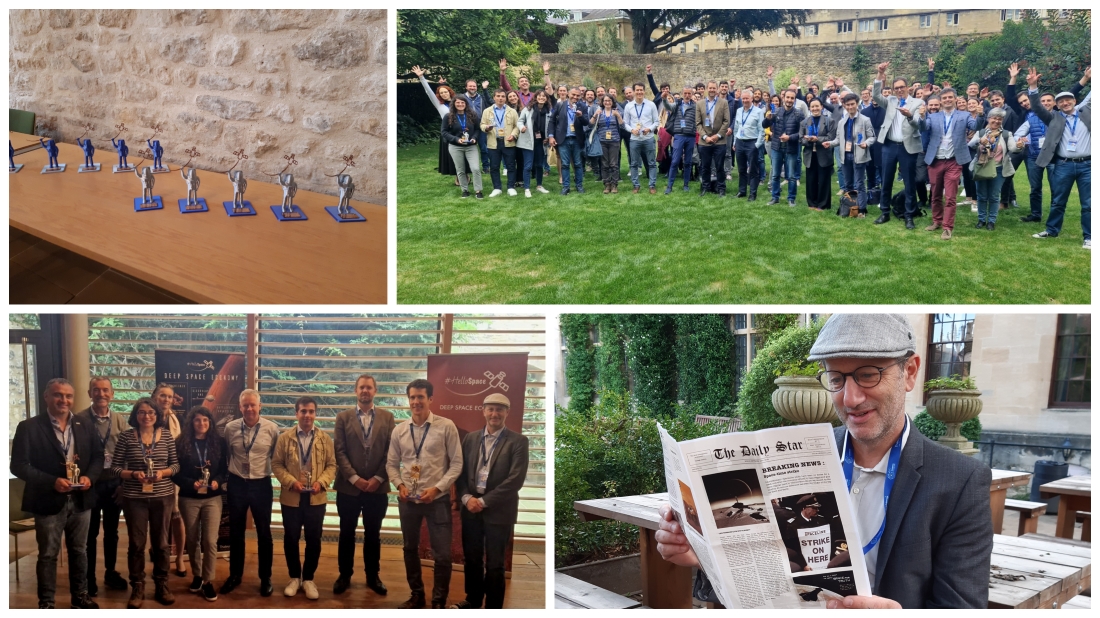
© Thales Alenia Space
The 11 teams were asked to imagine for a moment that they were in 2050; humans are living on different celestial bodies. The Moon for sure was the first. All started with NASA’s ARTEMIS program in the 2010’s, aiming to bring astronauts back to the Moon, nearly 50 years after the Apollo missions. A lot of people had decided to leave the Earth to settle down on Mars. Oh yeah we forgot to tell you: in the 2020’s and 2030’s the Moon became an outpost to prepare manned space exploration mission across the solar system. Engineers, from different space agencies, settled down around and on the Moon’s surface. A cislunar space station was created, Lunar Gateway. Orion, NASA’s manned capsule was the spacecraft used to bring astronauts from the Earth to the Moon, and from the Moon to deep space. There was a real lunar space economy that was created from scratch around the Moon, including human landing systems, shelters, habitats for astronauts, solar panels to generate energy, systems to provide oxygen to astronauts, rovers and many more. Engineers had even created telecommunications and navigation space systems around the Moon.
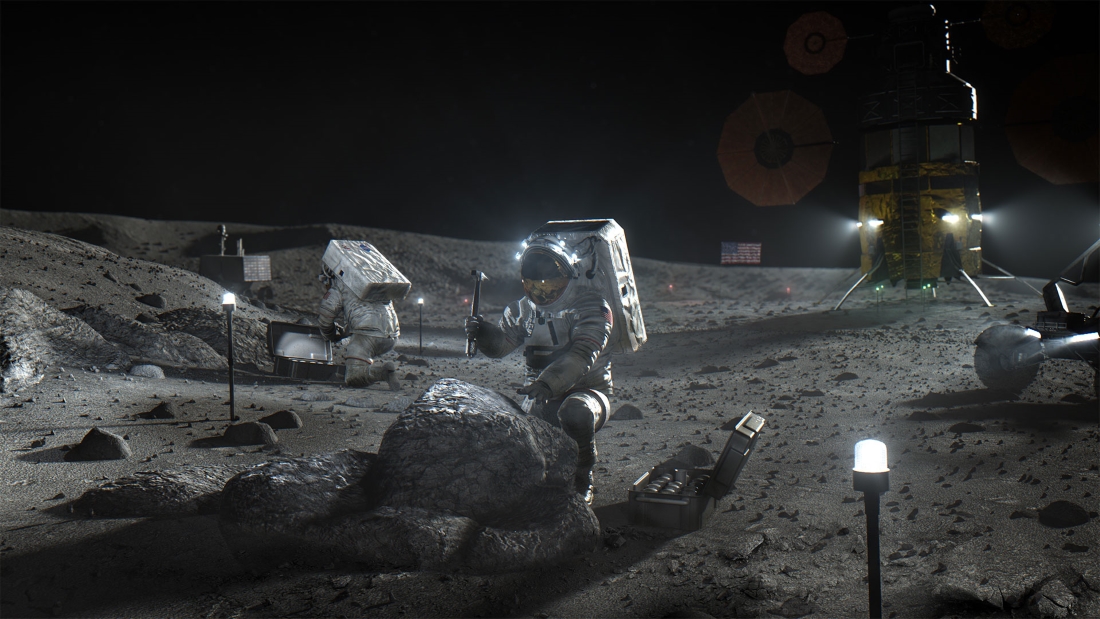
© NASA
Can you just imagine that? What was before sci-fi had become reality. The planet Mars became really trendy in the 2040’s.
The Martian colony had recently completed its first permanent habitation structures and is ready to grow from the few hundred scientists and engineers based there now to a colony of a size to rival the Moon in the next decade. Away from the planets the asteroid belt is a hive of activity with asteroid mining companies mining water and precious metals from a wealth of different asteroids. It is all centrally managed from a control hub on Ceres manned by a small group of engineers. Those Mars and Ceres bases are also good starting points for further destinations in the Solar System, such as Io, Europe, Ganymède, Callisto, Titan, Rhéa, Japet...
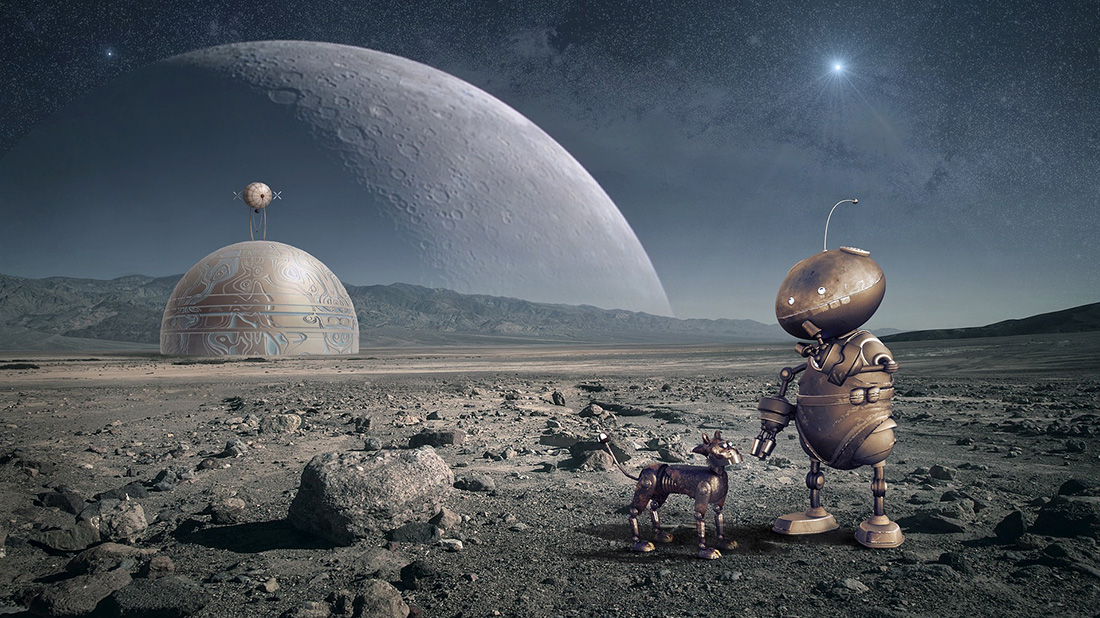
© Pixabay
The Moon remaining the first choice base for missions towards Venus, Mercury and the Sun. However, this swarm of human activities in space beyond the terrestrial orbits came with specific issues, some of which were not new: extension of existing geopolitical tensions on Earth to the outer space area; intensification of public / private co-opetition; legal issues with regard to territory and resource ownership, nationality of human born in space; long term subsistence and autonomy; space missions and living cost reduction; logistics; space traffic management… and many other ones that you can imagine!
In 2050 Thales Alenia Space has become an undisputed leader of this Deep Space Economy. This success story started in 2022, when a small team of Innovation Fellows pitched their bold vision with a short term action plan to make it concrete and real!
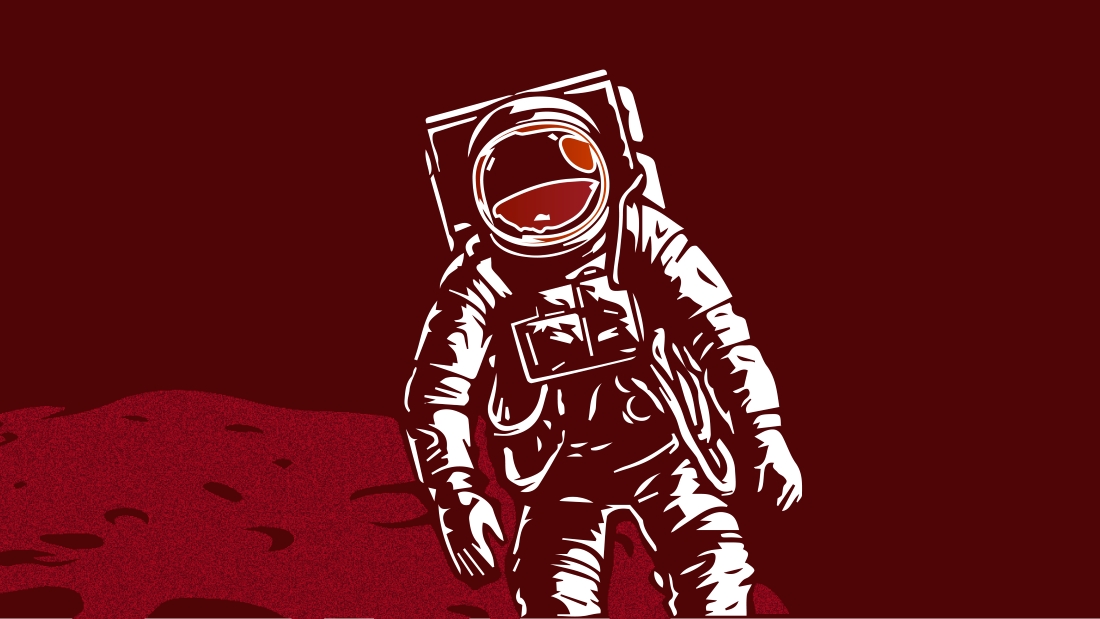
© Thales Alenia Space/S. Morel
End of story. Astonishing story don’t you think?
Travelling back to the Earth.
Based on this inspiring brief and keynotes from Sam Adlen of the Satellite Applications Catapult, the teams had 2 days to come up with new products and business plans that would help Thales Alenia Space thrive in this new environment, allowing it to become an undisputed leader of the deep space economy by 2050. The 11 teams produced a wide range of ideas, and, with the help of internal coaches, crafted them into interesting and innovative pitches which resulted in a difficult decision for the panel of judges tasked with selecting the best one (the judging panel was made up of internal and external stakeholders with extensive experience and knowledge of the space economy).
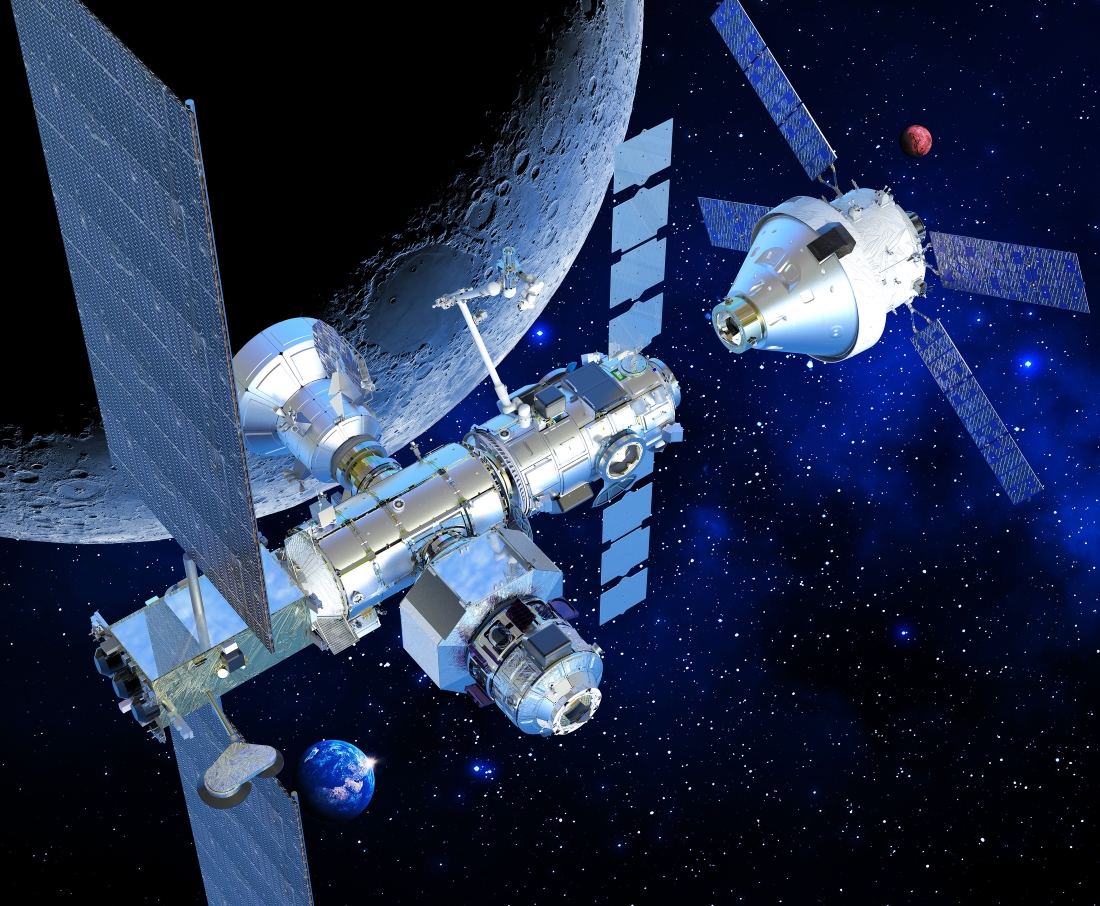
Lunar Gateway © Thales Alenia Space/Briot
This one-of-a-kind event was a timely reminder of how space technologies are serving the needs of our citizens around the world down on Earth but also highlights Thales Alenia Space’s position as a pioneer in the fields of exploration, robotics, space transport, and orbital infrastructures. Leveraging on its one-of-a-kind experience onboard the ISS, Thales Alenia Space has actually become the world leader in orbital infrastructures, providing 3 pressurized modules for Lunar Gateway, 2 ones for Axiom Commercial space station, as well all the pressurized cargo modules dedicated to Cygnus resupply vessels. These latest are made to provide crews onboard the ISS with more than 3.5 tons of water, propellant, repairs, science experiment, astronauts’ belongings and many more. Our company has capitalized on this legacy to serve the most incredible space exploration missions across the solar system, pushing back the boundaries of the universe and revealing its deepest secrets.
Innovation Cluster: catalyzing and boosting innovations
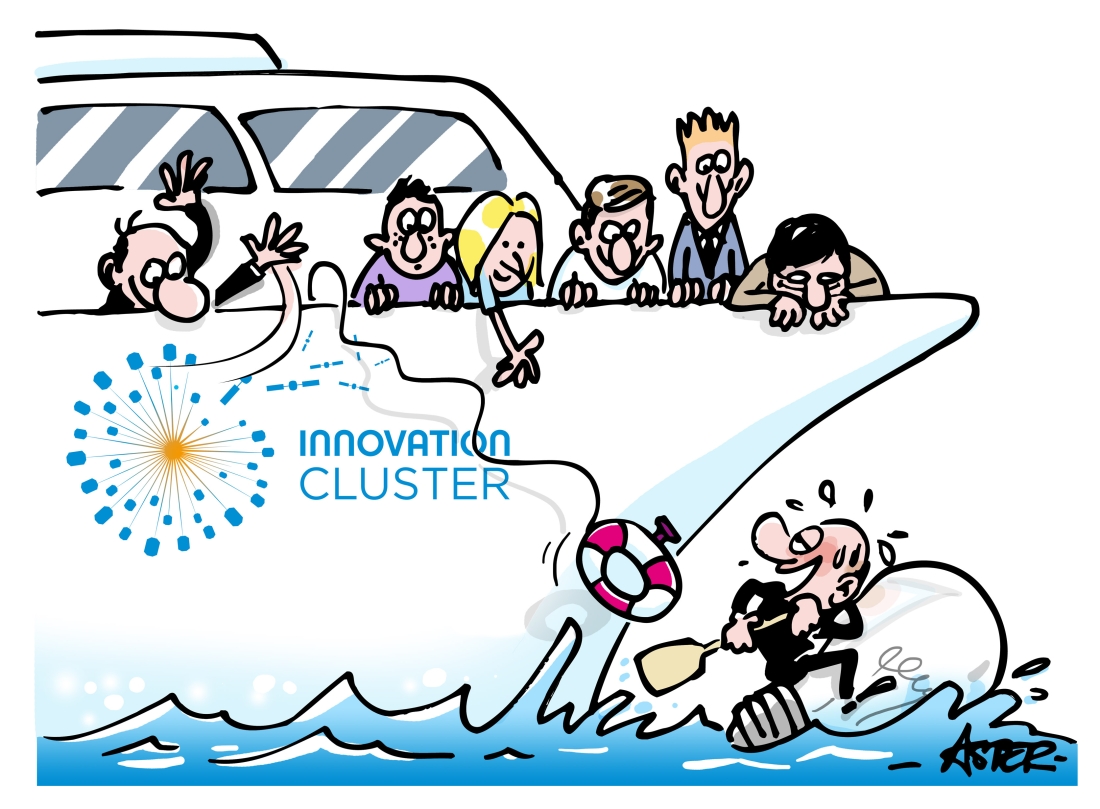
Cartoon designed by ASTER
Created in 2014, the Innovation Cluster aims to spawn disruptive industrial, technical and commercial concepts, and to encourage new initiatives within the company. The cluster is integral to Thales Alenia Space’s transformation strategy, firmly focused on nurturing a stronger innovation culture by stimulating intrapreneurship and creativity. Open to all, this network funds innovative value-added projects proposed by employees from across the company. It is thus a fertile breeding ground for advancing disruptive concepts, complementing R&D and reaching across the enterprise. The very agile structure can instantly provide the budget and resources needed to rapidly validate solutions with the potential to fuel a real market dynamic, and propose leap-ahead technologies and new development avenues for customers.
In addition to providing funding for new ideas several fablabs (rapid prototyping workshops open to all employees) have already taken shape at Thales Alenia Space under the Innovation Cluster’s guiding hand, in Toulouse, Rome, Cannes and Charleroi. These Fablabs are a breeding ground of innovation, allowing employees to explore and share their ideas more easily through the medium of rapid prototyping.
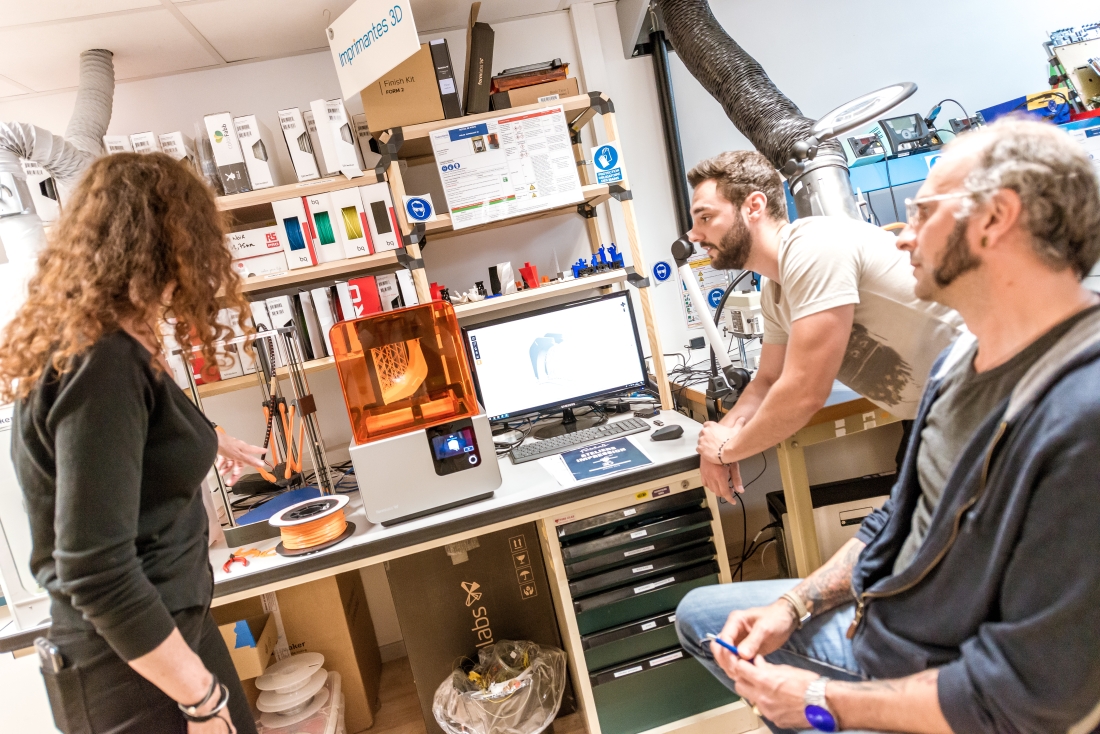
© Thales Alenia Space
The Cluster has also organized all #HelloSpace hackathons to date. An initiative like #HelloSpace is more than ever a fertile breeding ground for advancing future disruptive concepts in the space sector, leveraging Thales Alenia Space employees creativity and intrapreneurship mindset.


